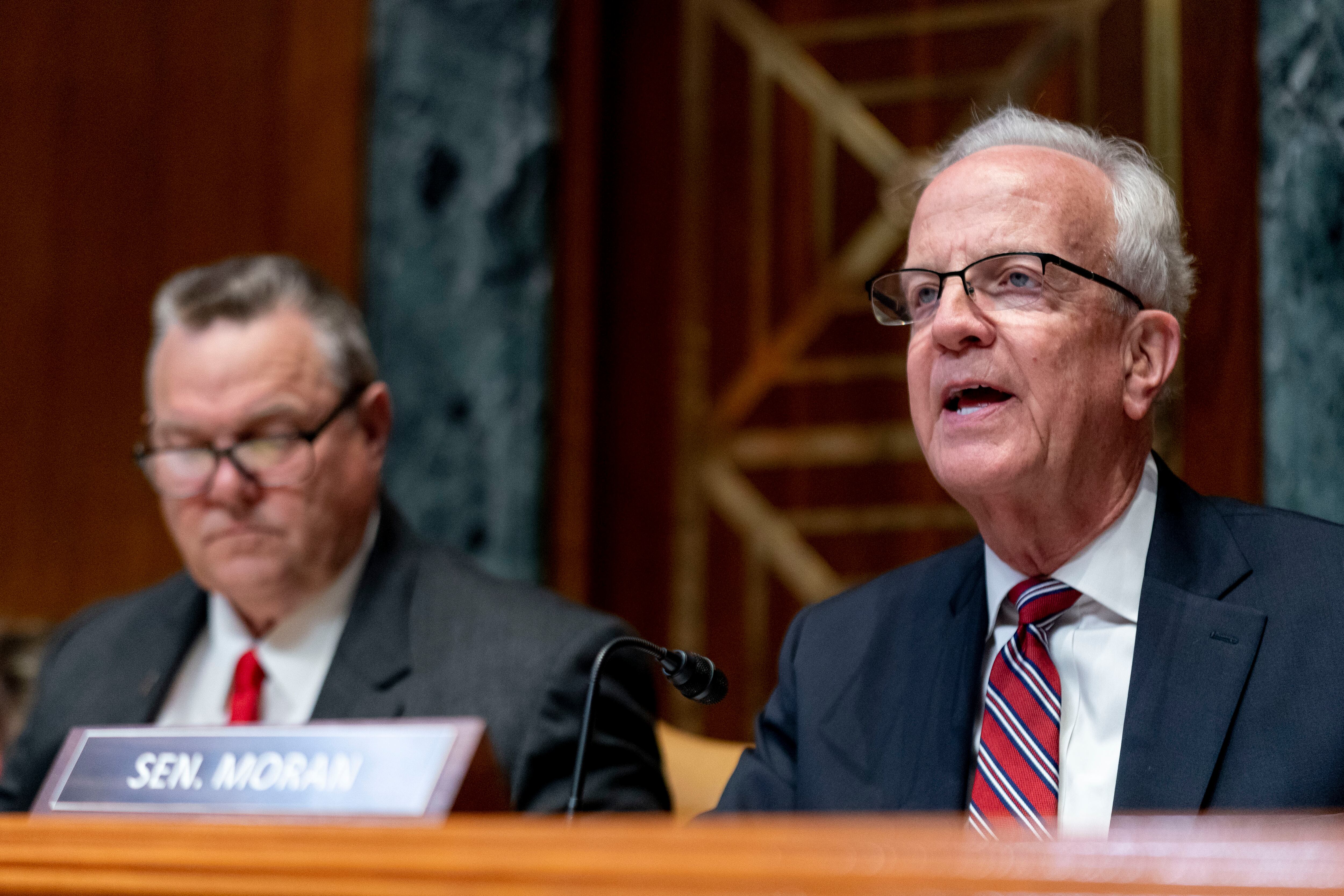WASHINGTON ― It’s official: Sen. Jack Reed, D-R.I., became chairman of the Senate Armed Services Committee on Wednesday as the Senate approved its power-sharing arrangement for the evenly split upper chamber.
The long-awaited deal was part of a wave of organizational moves in both chambers that saw some familiar figures like Reed in new roles and some new lawmakers added to the Armed Services committees. They further codify the new status quo in Congress since the Georgia runoff and general elections last year.
For defense appropriations, the biggest change has yet to be announced.
Sen. Dick Durbin, D-Ill., formerly the ranking member of the Senate Appropriations Committee’s defense subpanel, reportedly offered to forgo the gavel because he also serves as the Senate’s No. 2 Democrat and, as of this week, chairman of the Judiciary Committee. The panel membership has not been set, but its former chairman, Sen. Richard Shelby, R-Ala., is expected to serve as the subpanel’s ranking member.
For defense policy, the biggest but most expected change is that Reed replaces Sen. Jim Inhofe, R-Okla., who will become the Senate Armed Services Committee’s ranking member. Reed is expected to steer confirmation for President Joe Biden’s Pentagon nominees, and unveil his own agenda in the coming weeks.
Reed plans for “a sharp focus on forward-looking policies, programs, platforms, and cyber defense systems that offer the strongest return-on-investment possible in terms of mission effectiveness, operational readiness, and survivability,” his office said in a statement.
SASC Democrats added Sen. Mark Kelly — a retired NASA astronaut and a 25-year Navy veteran who served as a combat pilot — along with Nevada Sen. Jacky Rosen, whose state is home to Nellis Air Force Base, the service’s focus for advanced combat training. New Mexico Sen. Martin Heinrich departed. Kelly unseated Republican SASC member Martha McSally.
Republicans added Alabama Sen. Tommy Tuberville — a staunch supporter of former President Donald Trump — who unseated Democratic SASC member Doug Jones. Tuberville’s military-heavy home state will host the headquarters of U.S. Space Command, though the decision is mired in political controversy.
Who will replace Georgia’s David Perdue as the Seapower Subcommittee’s top Republican hadn’t been announced as of Thursday morning. The job comes with significant sway over a large swath of the annual defense policy bill.
The House Armed Services Committee’s new vice chair is Virginia Democratic Rep. Elaine Luria, a retired Navy commander who represents naval and shipbuilding hub Hampton Roads. Luria has also been an outspoken defender of modernizing the nuclear triad, an issue that has split Democrats.
Luria replaces Maryland Democratic Rep. Anthony Brown, a retired Army colonel who co-sponsored a high-profile measure to remove Confederate names from Defense Department-owned property.
The panel has also broken the Intelligence and Emerging Threats and Capabilities Subcommittee into two: a new Intelligence and Special Operations Subcommittee to be chaired by Rep. Ruben Gallego, D-Ariz., and a new Cyber, Innovative Technologies, and Information Systems Subcommittee, chaired by Rep. Jim Langevin, D-R.I.
The top Republicans on the panels are Rep. Trent Kelly, R-Miss., and Rep. Elise Stefanik, R-N.Y., respectively.
Rep. Jim Banks, R-Ind., was named the Personnel Subcommittee’s ranking member.
Joe Gould was the senior Pentagon reporter for Defense News, covering the intersection of national security policy, politics and the defense industry. He had previously served as Congress reporter.





